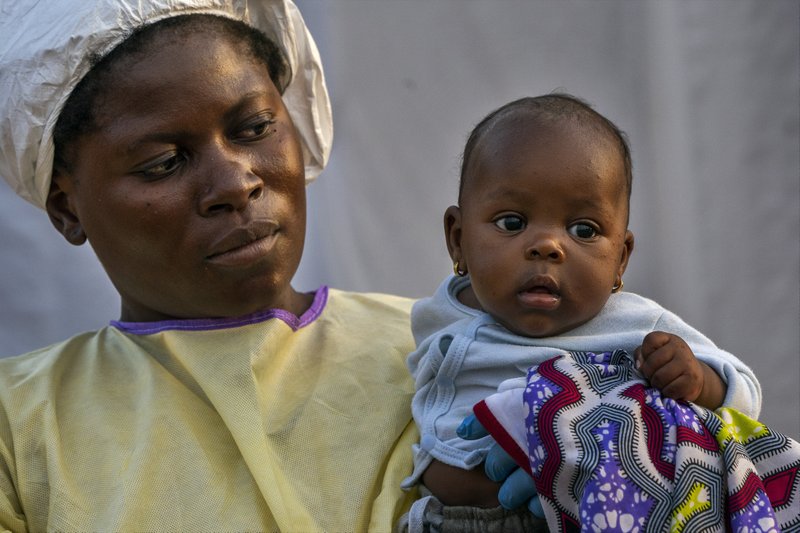BENI, Congo -- The Ebola outbreak in eastern Congo is ravaging Beni, a sprawling city of about 600,000 people, in large part because so many of the sick are choosing to stay at home. In doing so, they unknowingly infect caregivers and those who mourn them.
"People are waiting until the last minute to bring their family members, and when they do, it's complicated for us," said Mathieu Kanyama, head of health promotion at the Ebola treatment center in Beni run by the Alliance for International Medical Action. "Here there are doctors, not magicians."
Nearly a year into the outbreak, which has killed more than 1,700 and was declared a global health emergency this month, a rise in community deaths is fueling a resurgence of Ebola in Beni. During a two-week period in July, 30 people died while at home.
Health teams are now going door to door with megaphones to try to get the message out.
"Behind every person who has died, there is someone developing a fever," Dr. Gaston Tshapenda, who leads the Ebola response in Beni for Congo's Health Ministry, told his teams.
Many people still don't believe Ebola is real, health experts say, which stymies efforts to control the disease's spread.
Ebola symptoms are also similar to those of common killers such as malaria and typhoid, so people who are afraid of going to treatment centers often try to self-medicate at home with paracetamol to reduce fever.
But Ebola, unlike those other illnesses, requires the patient to be kept in isolation and away from the comfort of family.
Dr. Maurice Kakule, who became one of this outbreak's first Ebola patients after he treated a sick woman at his clinic, is now trying to make it easier for those who are ill to get help in and around Beni, near the border with Uganda.
He and other survivors, who are now immune to the disease, run a motorcycle taxi ambulance. After receiving phone calls for help, they go to homes, reassure the sick and take them for medical care without infecting others.
People's most common fear is that they will only leave Ebola treatment centers in body bags, Kakule said.
"Some have heard of the problem of Ebola, but there have been no survivors in their family," he said. "Since they had relatives die at a treatment center, they think people are killed there, and that's why they categorically refuse to go."
They fear, too, that they will die alone, surrounded only by health care personnel covered in protective gear from head to toe.
To try to humanize the care of patients in isolation, the Alliance for International Medical Action's Ebola treatment center in Beni places some patients in their own transparent rooms, where they can see visitors from their beds. And in some cases, a person with Ebola can share a room with one other patient and have a glass window where loved ones can gather.
While there is no licensed treatment for Ebola, patients in eastern Congo are able to take part in clinical trials. That's a welcome change from the 2014-2016 outbreak in West Africa, when many patients entered Ebola centers but never left them alive. More than 11,000 people died in that outbreak.
Still, the measures needed to keep Ebola from spreading remain difficult for many people to accept.
"We cannot be oblivious to the fact that when you're sick with Ebola, you're put somewhere away from your family, with a 50% chance of dying alone from your loved ones," said Dr. Joanne Liu, president of Doctors Without Borders, which is helping to fight the outbreak. "I don't blame people for not finding this attractive, despite the fact that we have a clinical trial going on."
Saudi Arabia, meanwhile, has stopped issuing visas to people from Congo, citing the Ebola outbreak, even as the World Health Organization recommends against travel restrictions.
Information for this article was contributed by Al-Hadji Kudra Maliro, Maria Cheng and Saleh Mwanamilongo of The Associated Press.
A Section on 07/27/2019

